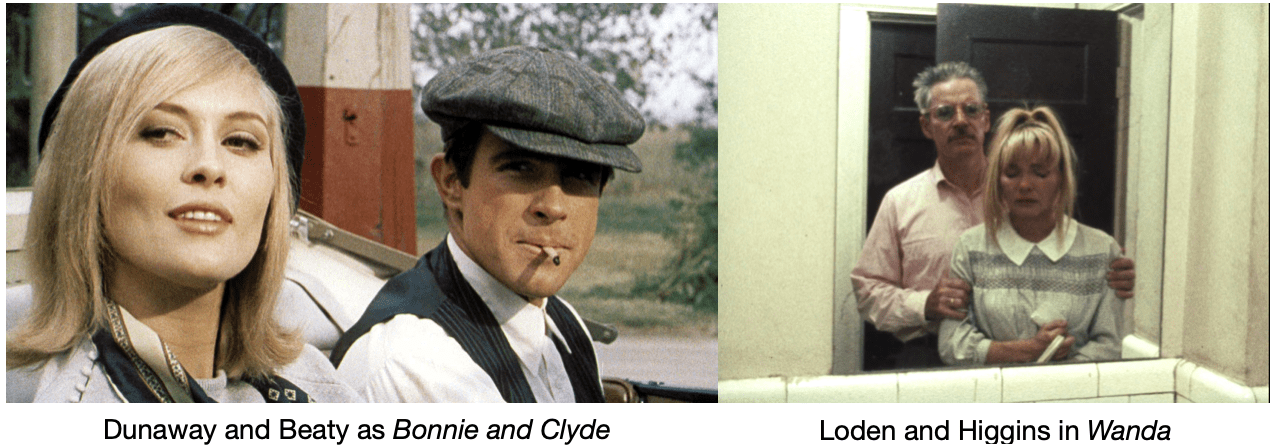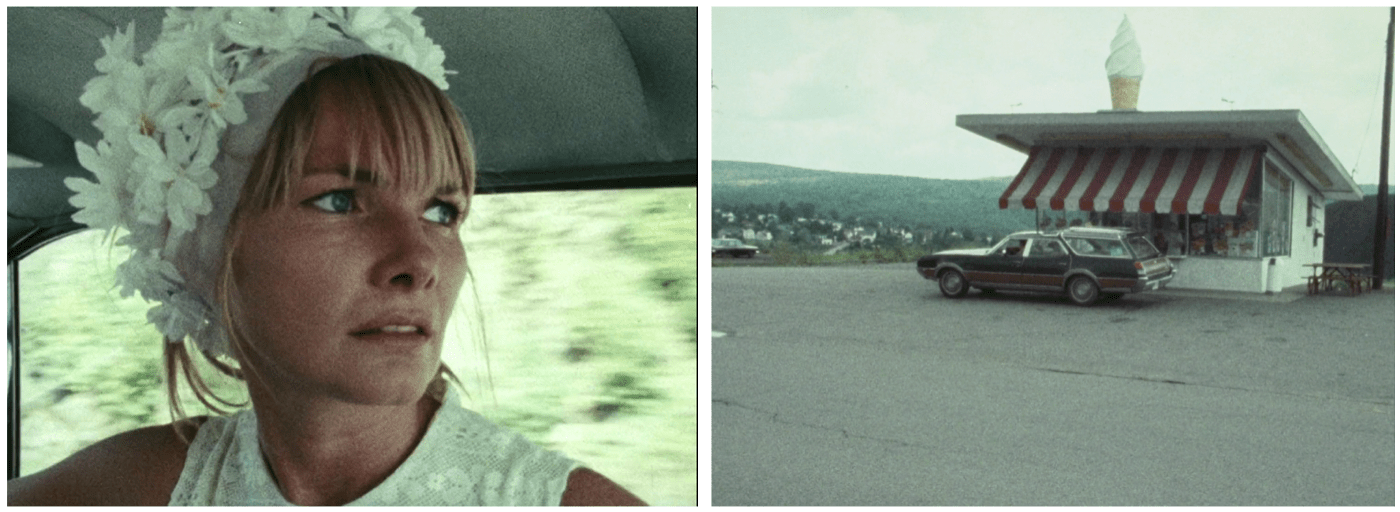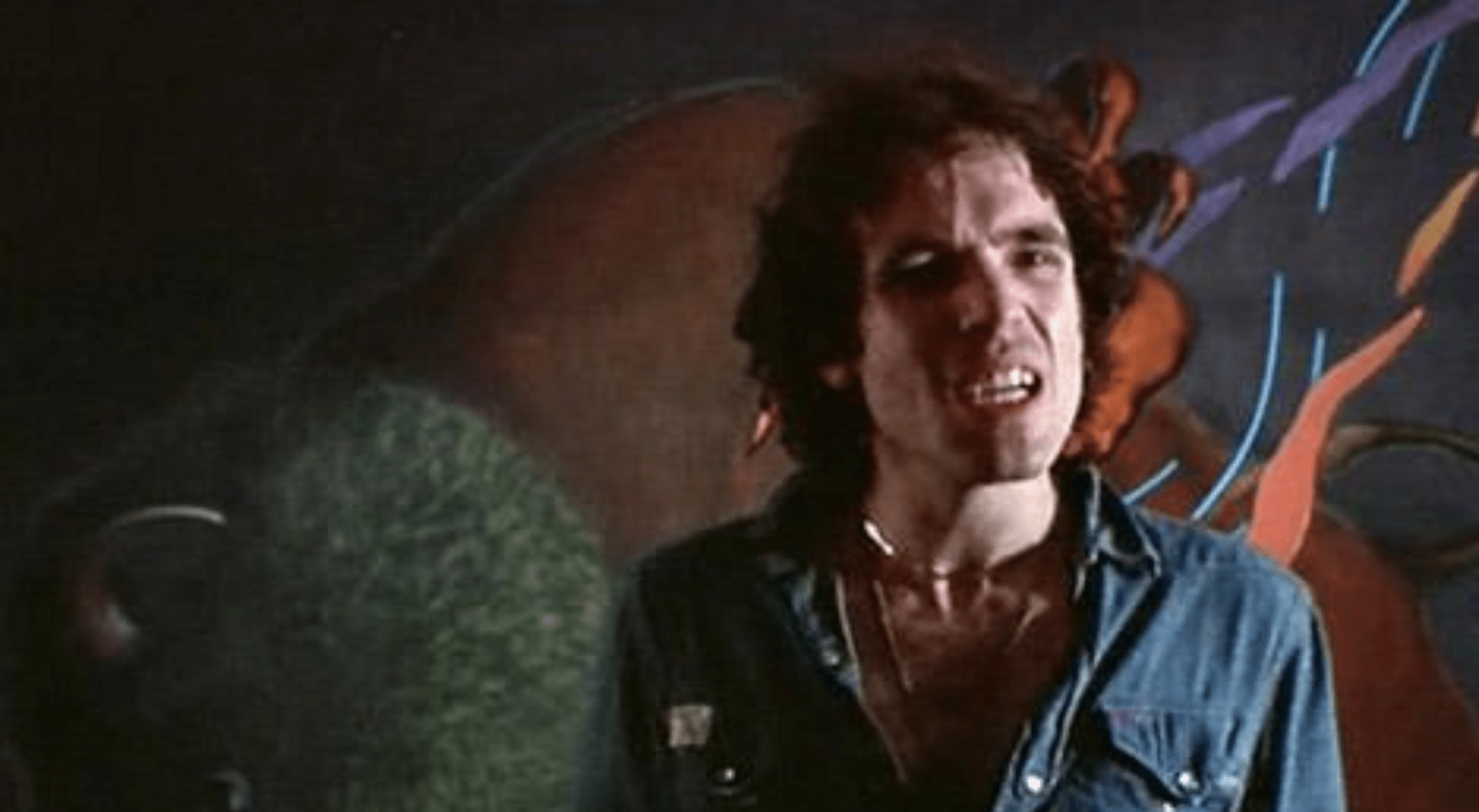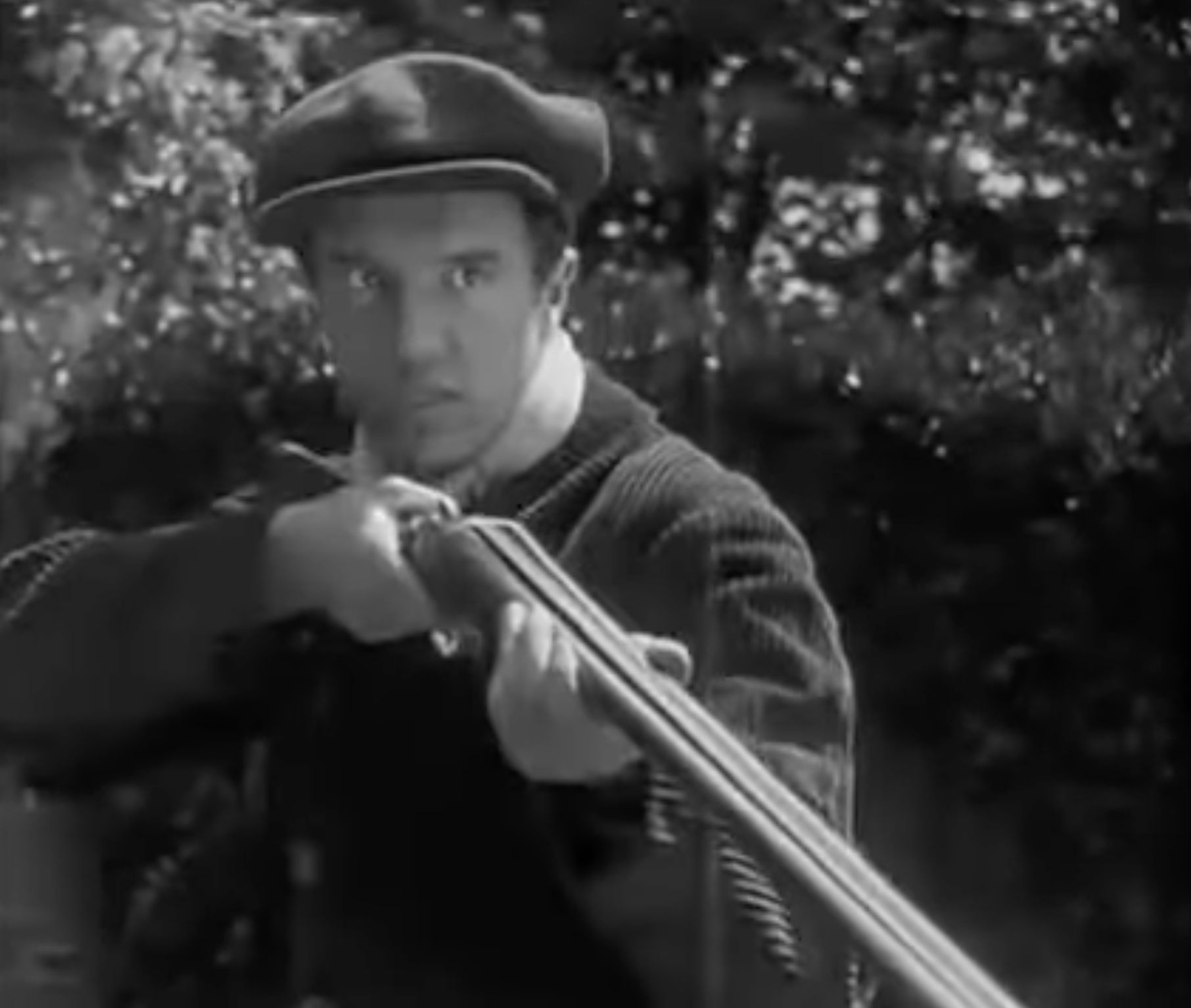
Wanda is a bleak film. Imagine if you asked Bela Tarr to remake Bonnie and Clyde. There is no release, no redemption, not even an annihilation, just the forward momentum of existence.
Wanda was the only feature film Barbara Loden made. She wrote it, directed it, and stared in it as well. It's a ragged, low-budget film but it is beautifully crafted. As a time capsule alone it captures a bittersweet vision of 1970’s rural America. Loden’s compositions and atmosphere often evoke the lonely, quiet world seen in Edward Hopper paintings. There is a class difference, Wanda is too poor to make it into one of Hopper’s paintings, and Loden allows a little more grit to get through but the resemblance is there. They depict the same emotional world.

For both artists, the world is kept at a distance. Wanda is often small on the screen emphasizing not only her isolation but her lack of significance. Wanda is as much about a time and place as it is about an individual.

Wanda is not an active participant in her life and yet she seems up for almost anything. She won’t initiate anything but she will go along with anything. She is withdrawn and a little vacant but she isn’t shy. She doesn’t really engage with the people around her but she isn’t afraid of them. Wanda is indifferent to most things, even things some people might find shocking. She will sleep with whoever is on hand. She’s willing to steal, she lives by her wits from hour to hour without any plan or expectations. She is disengaged and simply lets circumstances buffet her about.
Her husband divorces her and she is unperturbed. He gets custody of the kids and she is unmoved. She just wanders off to see what’s next. The film came out in 1970 and although the role of women in society and in film was changing, this was a protagonist audiences had not seen before. Wanda lacks dimension. Not because she is a poorly written character but because she is not a person with much of an inner life. She is aimless, partly because she doesn’t care and partly because the world doesn’t seem to care about her either. They’ve given up on each other.
The bulk of the film follows a Bonnie and Clyde structure. She meets a man who is on a crime spree and together they screw over everyone they meet. They steal cars, food, money, clothing, whatever they need. However, their spree bears little resemblance to Arthur Penn’s 1967 Bonnie and Clyde or the real Bonnie and Clyde for that matter. Wanda and her man, who she calls Mr. Dennis, are not taking on the world and celebrating a life of freedom and narcissistic bravado. They are trying to get by. Neither of them takes joy in what they are doing.

Neither of them talk much but there is a scene in a scrubby field where they stop to drink and squabble.
Wanda: “I don’t have anything, never did have anything, never will have anything.”
Mr. Dennis: “You’re stupid”
Wanda: “I’m stupid?”
Mr. Dennis: “You don’t want anything you don’t have anything. You don’t have anything you’re nothing. May as well be dead. You’re not even a citizen of the United States
Wanda: “Then I guess I’m dead then.”
Any book on writing that your protagonist has to want something. It is the engine that drives a story. Without a problem standing in the way of a goal, you’re at a stand still. At the very least you need a character that cares about something, but Wanda is defeated.
While they are drinking a remote control model airplane comes buzzing by high up in the sky. It’s unclear whether Wanda or Mr.Dennis realize it is a model and not an actual plane. It becomes a temporary surrogate goal that Mr. Dennis impotently swipes at while clutching an open bottle of Jack Daniels. It's a combination of an annoying fly buzzing out of reach and some lofty magical prize they have no hope of winning.

The film’s balance between poetic symbolism and raw grit is delicately calibrated. The film is grainy and unvarnished but it has moments of transcendence. It is firmly rooted in the specifics of its characters who are far from easily relatable, but there is still something in Wanda’s world that connects to ours. She is an anti-hero who is too short-sighted to embrace her journey, but her failings function as exaggerated representations of our own failings.
Mr. Dennis insists that the two fo them wear proper clothing. Wanda must wear a dress, no slacks allowed, and he wears a suit. Mr. Dennis seems to present this code as a means camouflage enabling them to blend in but clearly there is something more behind it. We know very little about what is going on in Mr. Dennis’ head but he appears to have aspirations toward mainstream, polite society. The two of them are partly playing at being an upright married couple. Unlike Bonnie and Clyde with their delusions of grandeur, Wanda and Dennis have short-sighted aspirations of normalcy. Where Bonnie and Clyde are a romanticized fantasy of breaking free, Wanda and Mr. Dennis are more like addicts convincing themselves that one day they will be clean and normal.

By 1970 the Hayes Code of censorship in America had been repealed but most “edgy” films still contrived an ending that attempted to repent for any “degeneracy” they had displayed. A life of crime or sexual freedom had to end badly. The audience is allowed to see something naughty or shocking and then gets a slap on the wrist before they leave. The slap reframes the indulgence as an educational or cautionary tale.
Spoilers Ahead
Wanda hardly ends on a positive note and it does not repent either. After Mr. Dennis is killed in a bank heist, Wanda wonders off into more anonymous sex and heavy drinking. She is distraught and confused but there is no sign of epiphany or change. The film ends with a 400 Blows style film still. The strange thing about the way the still functions in both films is that it prevents a final closure and keeps the narrative open. It seems that a still photo would somehow feel final but instead, it highlights the action of the character in such a way that it is suspended instead of closed.

Wanda brings depth to a character that usually isn’t afforded much consideration. It’s not that films do not depict such marginalized women it’s that they are seldom given any attention or empathy. Wanda is not explicitly defended or even given a chance to express herself, but she is the protagonist and we still identify with her even if we have little or nothing in common with her.
Wanda was made on a budget of 100,000 dollars by a crew of four people. Much of it was improvised. Loden said of it "I don't see how anybody can predetermine how their movie is going to turn out, or why anybody would want to.” The film is an example of how storytelling and aesthetics need not be polished to a high sheen I order to be effective. The production value is rough but is completely in line with what Loden is trying to accomplish. The film, like its frayed and jagged protagonist, makes no apologies for itself.

If you enjoyed this article you might also like this - https://filmofileshideout.com/archives/jeanne-dielman-23-quai-du-commerce-1080-bruxelles/



